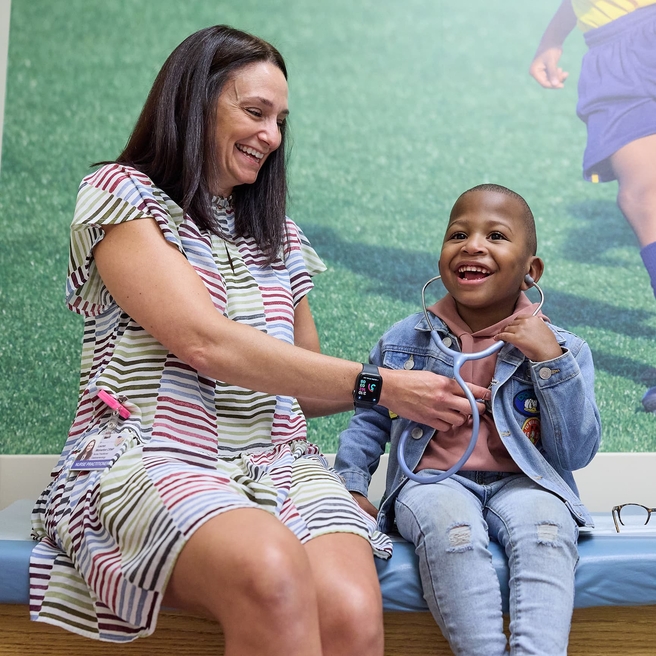What is acute recurrent pancreatitis?
The pancreas is an organ that is responsible for making digestive enzymes to help the body break down fats, proteins, and sugars from food. It also releases hormones to help the body process blood sugar.
Acute pancreatitis occurs when the pancreas becomes damaged or inflamed. Most children will have a single episode of acute pancreatitis and never have another episode in their life. Sometimes, a child may have more than one episode of acute pancreatitis. If a child has more than two episodes of acute pancreatitis, they are diagnosed with acute recurrent pancreatitis.
What is chronic pancreatitis?
If a child has acute recurrent pancreatitis and starts to have symptoms of permanent damage to the pancreas, their diagnosis has progressed to chronic pancreatitis. Children with permanent damage to the pancreas may have difficulty digesting foods and regulating their blood sugar levels.
Most children who develop chronic pancreatitis have a genetic, anatomic, or metabolic disorder that increases their risk of getting repeated episodes of pancreatitis. We do not always find the cause of chronic pancreatitis in every patient. CHOP researchers are working with other investigators around the country to find better ways to diagnose and treat chronic pancreatitis. Learn more about our research program.
Symptoms of acute recurrent and chronic pancreatitis
Patients with pancreatitis have symptoms related to the inflammation in the pancreas, including:
- Upper abdominal pain that
- May spread to the back
- May get worse after meals
- Remains severe despite medication
- Nausea and vomiting
- Decreased appetite
- Fever
While pain is the most common symptom, young children may not be able to communicate the severity or location of their pain.
Children with chronic pancreatitis will have symptoms related to permanent damage to the pancreas. The damaged pancreas may not produce digestive enzymes as well as a healthy pancreas, so symptoms may be related to undigested food in the GI tract:
- Crampy abdominal pain
- Gas and bloating
- Foul-smelling, greasy diarrhea
- Poor weight gain
- Weight loss
In addition, the damaged pancreas may not be able to produce hormones to regulate blood sugar. High blood sugar may cause diabetes and associated symptoms like frequent urination.
Diagnosis of chronic pancreatitis
In children, chronic pancreatitis is diagnosed based on evidence of permanent damage to the pancreas after multiple episodes of pancreatitis. There are multiple ways to assess for this damage:
- Imaging with MRI or CT scan can show scarring disrupted pancreatic tissue
- Endoscopic ultrasound may be needed if the above imaging is not conclusive
- Endoscopic retrograde pancreatography (ERCP) is a special endoscopy procedure that can investigate and sometimes treat chronic pancreatitis
- Stool and blood tests can look for problems with pancreas function due to permanent damage
Treatment for acute recurrent and chronic pancreatitis
In the midst of an episode of pancreatitis, the child is hospitalized for supportive care while the pancreas recovers from the inflammation. The child is given fluids to stay hydrated, IV or oral medications for pain control, and are encouraged to eat as soon as they feel comfortable.
Depending on the cause of chronic pancreatitis, children may be treated with ERCP, specific medications, or undergo surgery. A specific surgery called “total pancreatectomy with islet cell autotransplant” is sometimes recommended for specific genetic causes of chronic pancreatitis. In this procedure, the child’s pancreas is removed and the hormone-producing cells (the “islets”) are returned to the body.
At Children's Hospital of Philadelphia, children with acute recurrent and chronic pancreatitis are followed by physicians from the interdisciplinary team at the Pancreatic Disorders Program in the Division of Gastroenterology, Hepatology and Nutrition.
